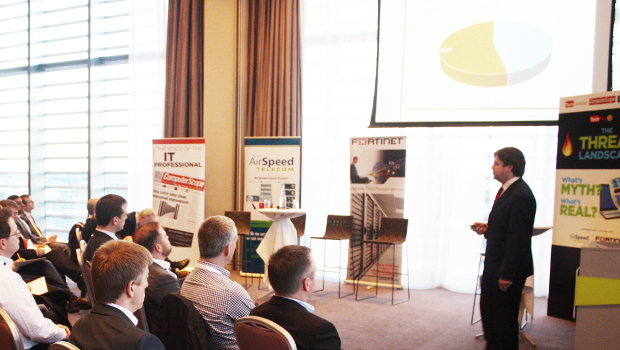End user computing (EUC) is under an extraordinary range of pressures.
No longer are end users the people who sit in front of desktops, in large numbers, in the same building as the help desk operators who had previously looked after them.
Today, it is not uncommon for a worker to complete a work task on a MacBook at home, a Windows laptop at work, an iPad on the go and an Android Phone in between. It is not unusual for certain knowledge workers to have at least three devices on which they regularly access work related materials or tasks.
It is also not unusual for end users, irrespective of where they are and on what they are working, to need access to information resources that would have previously been deemed too sensitive.
Added to all of this, is the expectation from end users of consumer-like experiences from corporate resources. This manifests in expectations for Dropbox-like file sharing that some vendors call “frictionless”. People expect to be able to collaborate as easily at work as they do on Facebook, and get frustrated when someone does not answer an email within their own organisation when they might be able to tweet directly the CEO of the group. These influences in particular have led to a growth in Shadow IT and the credit card provisioning of services by departments who bypass what can often be seen as inflexible and glacial IT response.
However, there are also knock-on effects for IT, even when they have managed to connect a disparate range of smart connected devices (SCD) and made data available to them. One of the effects is the sheer range of SCDs which they are now expected to support, as well as an increase in the ratio of users to support personnel.
Of course, all of this takes place within the relentless drive to lower costs and complexity, and increase reliability, while remaining compliant and secure.
Despite the fact that virtualisation has revolutionised the server, storage and networking worlds, virtual desktops are only part of the answer in the world of EUC.
TechFire 14 will address these issues, and look at the specifics of the EUC area to established best practices, with a specific example from the very challenging world of healthcare.
On 26 November, at the Gibson Hotel Dublin, in association with Triangle Technology, Richard O’Brien, technical director, Triangle, will discuss his experience in delivering many thousand seats of euc transformation and enterprise mobility management across healthcare, education, pharma and business process outsourcing in 2014.
Ian Moore, country manager, Ireland, VMware, will discuss how, in the mobile-cloud era, organisations are tapping into a new model for end-user computing that enables seamless movement from desktop, to laptop, to tablet, to phone, to car with applications, content and devices coming to life anywhere, anyplace, anytime.
Moore will share lessons learned from Irish VMware sites, with advice on planning your EUC journey towards a more efficient outcome.
Mark Graham, ICT director, Beaumont Hospital, will talk about the positive affect that adopting the right EUC strategy and supporting technologies has had in the delivery of better patient care and clinical outcomes.
To register for this free event go to www.techfire.ie.







Subscribers 0
Fans 0
Followers 0
Followers